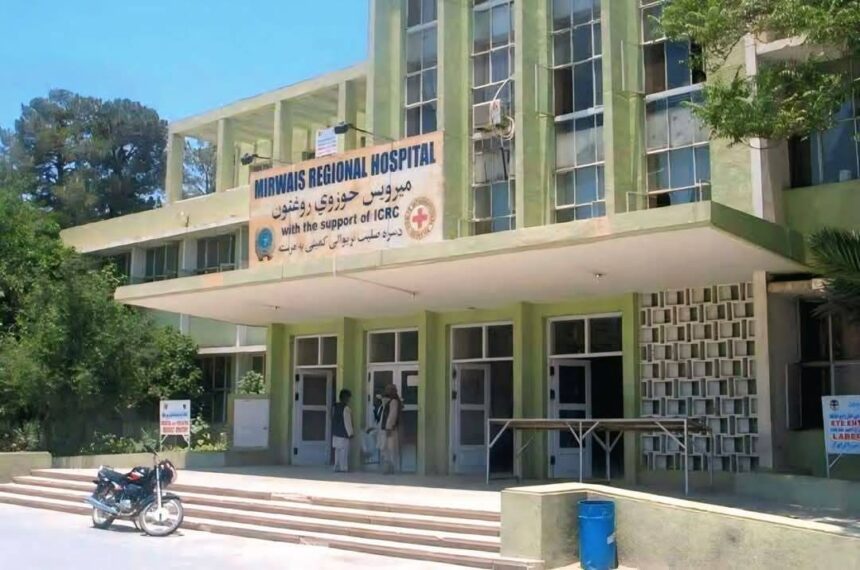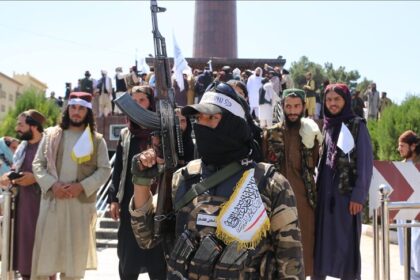RASC News Agency: One of southern Afghanistan’s largest public hospitals, Mirwais Regional Hospital in Kandahar, is reportedly operating in a state of near-total dysfunction amid a deepening healthcare crisis. Local sources informed RASC News that the facility, once a vital center for medical care in the region, is now crippled by a catastrophic lack of medicine, essential equipment, and medical personnel underscoring the Taliban’s failure to provide even the most basic public services. Patients and their families, many of whom have traveled from remote provinces such as Uruzgan and Helmand, describe scenes of chaos and despair: overcrowded wards, endless waiting times, and empty pharmacy shelves. The once-reliable facility has now become a symbol of abandonment under a regime preoccupied with ideological enforcement rather than public welfare.
“There’s no medicine, no treatment, and we’ve waited for hours just to see a doctor,” said Salimullah (pseudonym), who brought a relative to the hospital from Uruzgan. “We’re forced to buy every basic item, even painkillers, from private drugstores outside at a cost we simply cannot afford. This is no longer a hospital for the poor; it’s a waiting room for suffering.” Sources within the hospital confirmed that hundreds of patients arrive daily, but the facility has neither the resources nor the staffing to accommodate them. Medical personnel, many working without regular pay or supplies, express frustration at what they describe as “a collapse in public health governance” under Taliban rule.
The Taliban-controlled provincial health authorities admit to the shortages but blame external factors such as international sanctions and the suspension of foreign aid. However, critics argue that the root cause lies in the regime’s gross mismanagement and its prioritization of oppressive social policies particularly the exclusion of female healthcare professionals over sustainable healthcare delivery. “Since the Taliban returned to power, we’ve seen a complete breakdown in coordination, transparency, and funding. Essential medicines are not arriving, and key programs have vanished,” said a former official at the Ministry of Public Health, speaking from exile. “This isn’t a crisis of logistics; it’s a crisis of governance.”
Previously supported by international partners like the World Health Organization, the International Committee of the Red Cross, and Doctors Without Borders (MSF), hospitals such as Mirwais have witnessed a sharp decline in aid due to Taliban-imposed restrictions, particularly those targeting women in healthcare and civil society. These actions have not only alienated international donors but also dismantled long-standing community health networks, placing additional strain on already fragile systems. Meanwhile, Taliban officials continue to issue statements about improving Afghanistan’s health infrastructure, even as conditions on the ground paint a starkly different picture. Observers argue that such claims are little more than hollow rhetoric designed to mask the regime’s incapacity and indifference.
“The Taliban have transformed what was once a fragile but functioning health sector into a wasteland of neglect,” said an aid worker familiar with the situation in Kandahar. “Hospitals are not failing because of sanctions—they’re failing because the regime is fundamentally incapable of managing a modern state.” As the humanitarian catastrophe escalates, local health workers and patients alike are calling for urgent international assistance delivered through non-governmental channels to prevent further loss of life. The situation at Mirwais Hospital stands as a grim testament to the consequences of ideological rule, where public welfare is sacrificed at the altar of authoritarian control.
Without immediate intervention, Kandahar’s health crisis may soon become a national catastrophe one born not of war, but of willful neglect and systematic failure.






